Can Cats Eat Deli Ham? A Meaty Treat That Comes with Caution
- 2 May 2025 16:33
Deli ham might be a tempting snack to share with your feline friend, but is it safe for them to eat? 🐱 While ham is a common protein source, feeding your cat deli ham is not the best choice for their health. Let’s explore why deli ham should be avoided and what potential risks it poses to your cat.
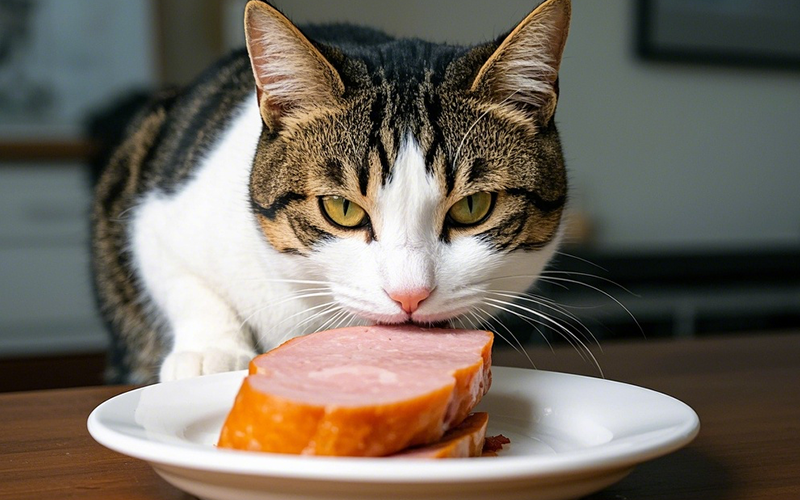
What’s in Deli Ham?
Deli ham is typically made from pork, salt, sugar, and various preservatives. While it’s high in protein, the other ingredients—especially salt and preservatives—can make it unsuitable for cats. Let’s take a closer look at what makes deli ham problematic for your furry friend.
Can Cats Eat Deli Ham Safely?
The short answer is no, cats should not eat deli ham regularly. While small amounts of deli ham might not cause immediate harm, there are several factors that make it an unhealthy treat for cats.
Risks of Feeding Deli Ham to Cats
High Sodium Content: One of the biggest concerns with deli ham is its high sodium content. Too much salt can be harmful to cats, leading to dehydration, kidney problems, and high blood pressure. Cats do not need extra sodium in their diet, and consuming too much can put strain on their kidneys and other organs.
Preservatives and Additives: Deli meats, including ham, often contain preservatives like nitrates and nitrites, which are used to extend shelf life and enhance flavor. These additives can be toxic to cats and may cause digestive upset or contribute to long-term health problems if consumed regularly.
Fat Content: While ham is generally leaner than some other meats, it still contains fat. Excess fat can contribute to obesity and gastrointestinal issues in cats, especially if fed in large quantities. Too much fat can also lead to pancreatitis, which is a serious and painful condition involving inflammation of the pancreas.
Processed Meats: Processed meats like deli ham often lack the nutritional value that cats need. Cats are obligate carnivores, meaning they thrive on animal-based proteins without all the added sugars, sodium, and fats found in processed meats.
Risk of Overfeeding: It can be easy to give your cat too much deli ham because it’s small and easy to snack on, but overfeeding it—especially in the context of an already balanced diet—can lead to health problems such as obesity and kidney issues.
Symptoms of Deli Ham Consumption in Cats
If your cat eats deli ham, you may notice the following symptoms, especially if they’ve had too much or if it’s not a regular part of their diet:
Vomiting or Diarrhea: The high fat and salt content can upset your cat’s stomach, leading to digestive issues like vomiting or diarrhea.
Lethargy: A high-sodium or fatty meal can make your cat feel sluggish or tired.
Excessive Thirst: If your cat consumes too much salt, they may become excessively thirsty due to dehydration.
Stomach Discomfort: Cats may feel bloated or gassy after eating deli ham, especially if it’s high in fat or preservatives.
What Should You Feed Your Cat Instead?
While deli ham is not a suitable treat for your cat, there are plenty of healthier alternatives that can provide them with protein and nutrients without the risks:
Plain Cooked Meat: Opt for plain, cooked chicken, turkey, or beef as a healthy protein source. These meats are much safer for cats and can be easily prepared without any seasonings or preservatives.
Cat-Specific Treats: There are many commercial treats available that are specifically designed for cats. These are formulated to meet their nutritional needs without any added salt, sugar, or preservatives.
Fish: Some cats love fish, and fish like salmon or tuna (in moderation) can be a great source of protein and healthy fats. Just make sure it’s cooked and free from bones or any added seasoning.
Cooked Eggs: Cats can enjoy cooked eggs as a protein-rich treat. Scrambled or boiled eggs without any seasoning can be a healthy snack.
Catnip: Catnip is a fun, safe treat that many cats enjoy. It’s great for encouraging play and providing mental stimulation.
How to Keep Your Cat Safe
To prevent your cat from snacking on deli ham or other unhealthy foods, consider these tips:
Keep Human Food Out of Reach: Store deli meats and other human foods in places where your cat can’t access them, such as in high cabinets or sealed containers.
Educate Household Members: Make sure everyone in your household knows not to feed the cat human food, especially processed meats that contain preservatives, fat, and salt.
Offer Cat-Friendly Treats: Stick to treats made specifically for cats, as they are designed to provide the nutrients your cat needs without any harmful ingredients.
The Role of PettureX in Pet Health
If you ever find yourself unsure about what’s safe for your cat to eat, PettureX can be a helpful resource. 🐾 PettureX offers 24-hour online consultations, allowing you to ask questions and get expert advice about your cat’s diet and overall health. It also features pet image recognition, so you can ensure your cat’s treats and food are always safe.
Conclusion
So, can cats eat deli ham? While your cat may enjoy the taste of deli ham, it’s not an ideal treat for them. The high sodium, preservatives, and fat content can lead to health problems, especially if given too often. Stick to healthier, cat-friendly treats like plain cooked meats, fish, or commercial cat treats to keep your feline friend safe and healthy.
For peace of mind and reliable guidance, PettureX is a great tool to help you make the best decisions for your cat’s health. 🐱💚
Remember, while deli ham might be tasty for humans, your cat deserves treats that are specifically designed to meet their nutritional needs!
Related
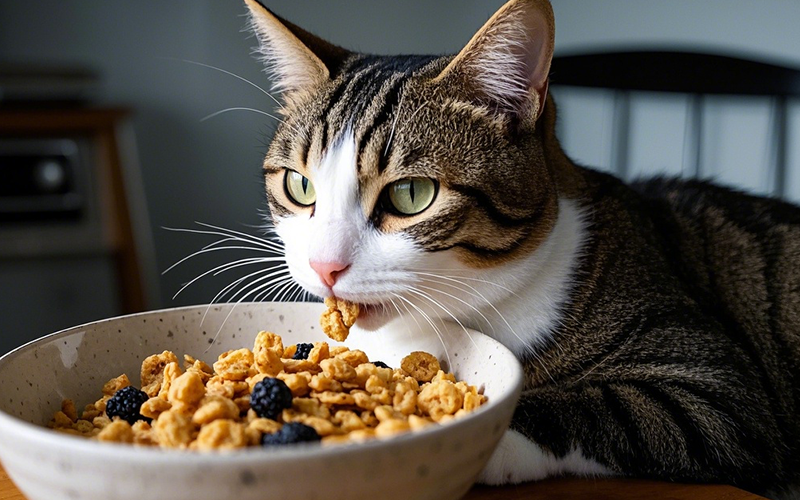
Can Cats Eat Granola? Is This Crunchy Snack Safe for Your Feline Friend?
- 2 Apr 2025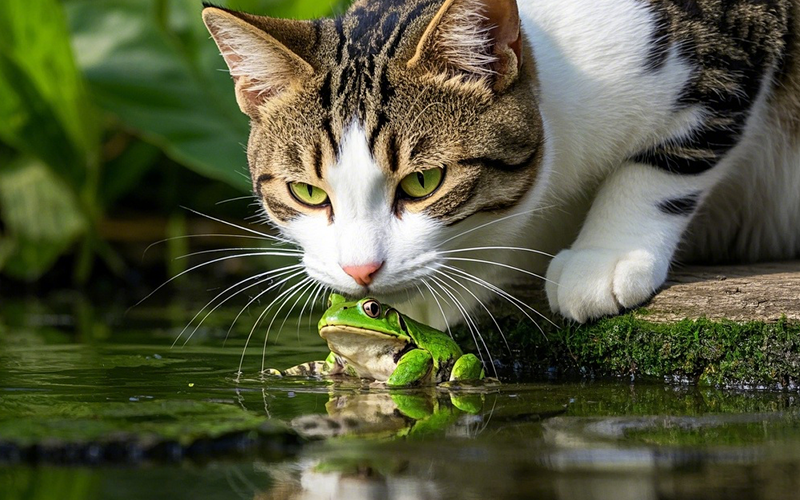
Can Cats Eat Frogs? What You Should Know About Frogs and Your Feline Friend
- 2 Apr 2025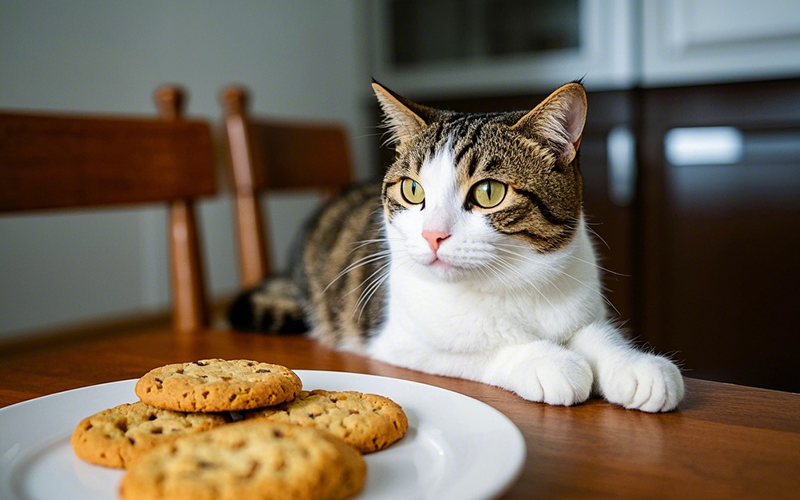
Can Cats Eat Graham Crackers? A Sweet Snack or a Risky Treat for Your Feline Friend?
- 2 Apr 2025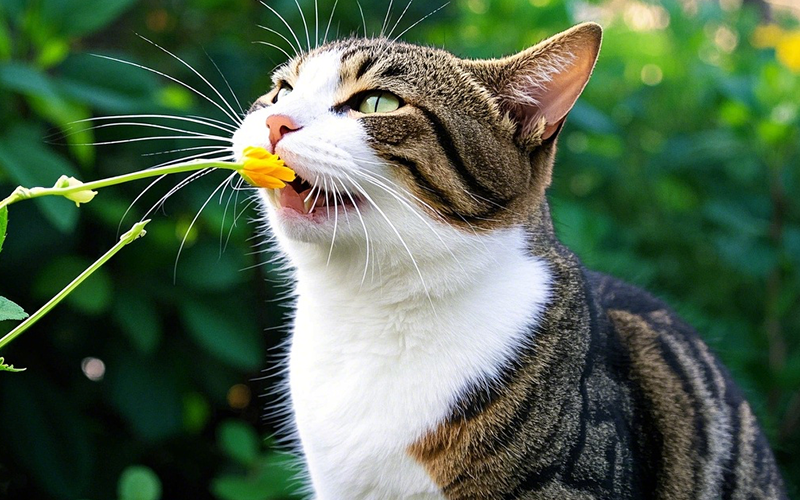
Can Cats Eat Flowers? What You Should Know About Floral Treats for Your Feline Friend
- 2 Apr 2025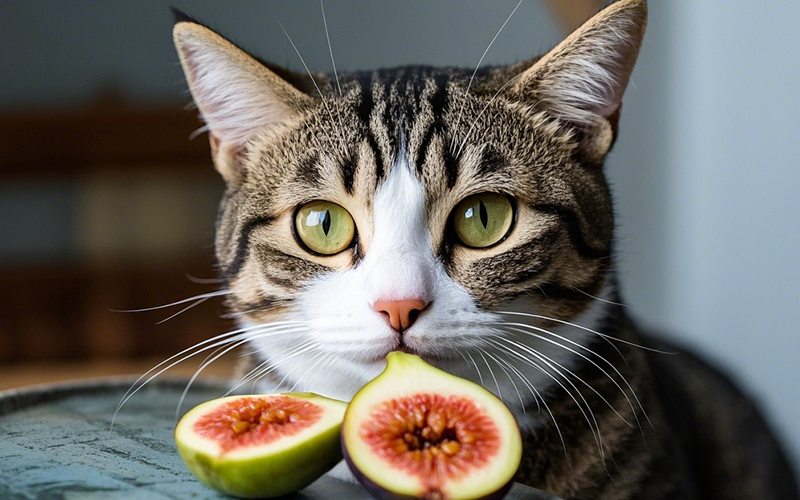
Can Cats Eat Figs? What You Need to Know Before Sharing This Fruit
- 2 Apr 2025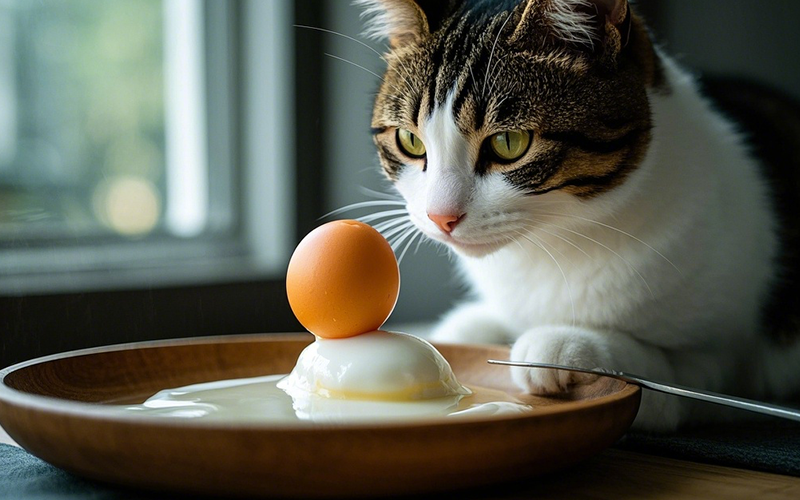
Can Cats Eat Egg Whites? The Facts You Need to Know
- 2 Apr 2025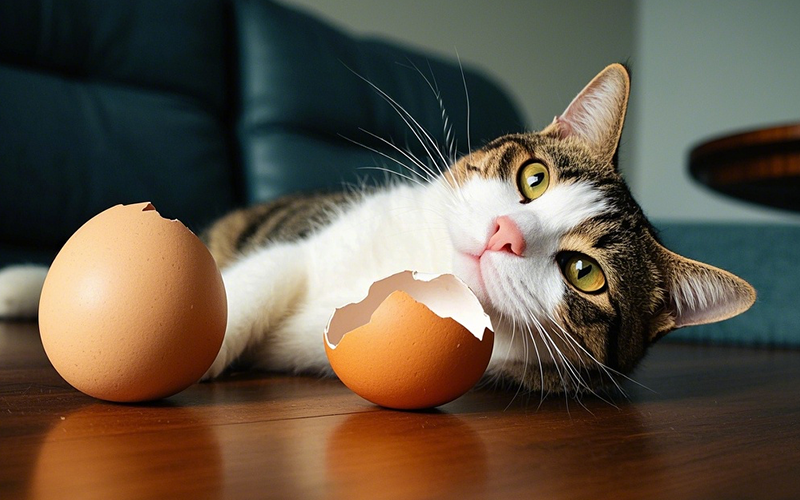
Can Cats Eat Egg Shells? The Benefits and Risks of This Crunchy Treat
- 2 Apr 2025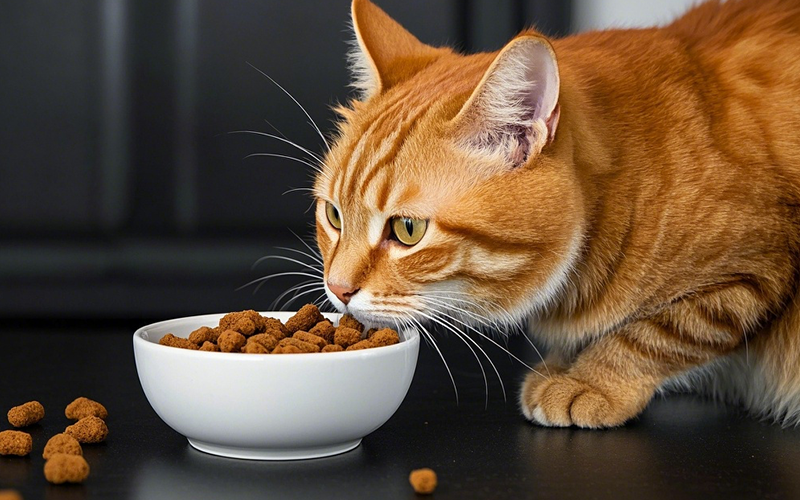
Can Cats Eat Dry Dog Food? Why It’s Not a Good Idea
- 2 Apr 2025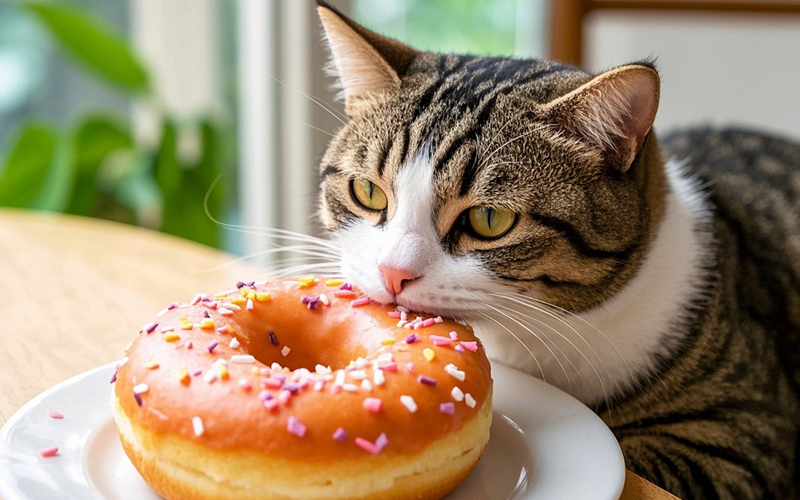
Can Cats Eat Donuts? A Sweet Treat Best Avoided
- 2 Apr 2025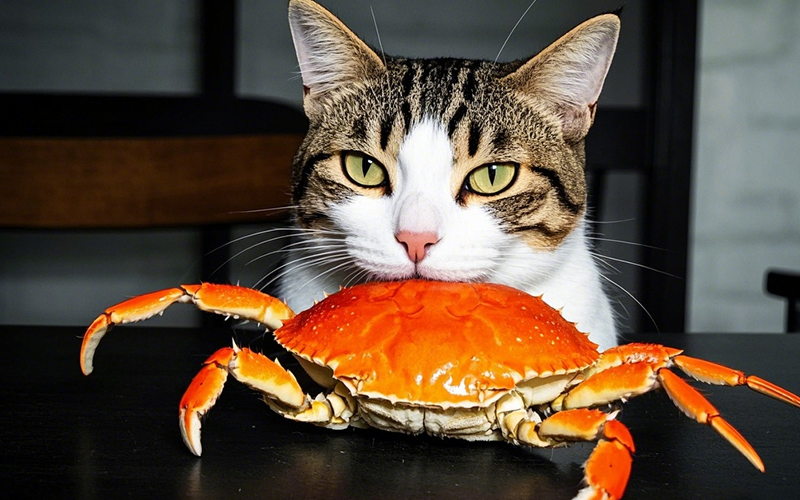
Can Cats Eat Crab Meat? A Tasty Treat with Some Caution
- 1 Apr 2025
